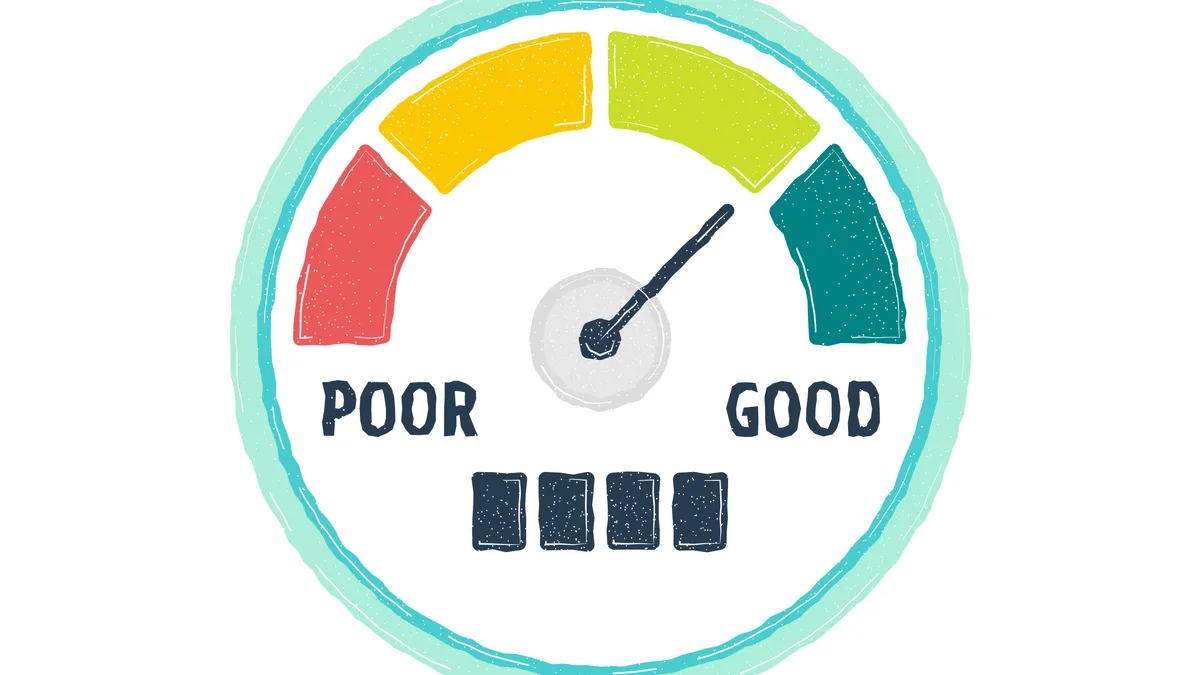Home>Finance>How Much Does A Credit Inquiry Lower Credit Score


Finance
How Much Does A Credit Inquiry Lower Credit Score
Published: March 4, 2024
Find out how credit inquiries impact your credit score and learn how to minimize their effects on your finances. Understand the impact of credit inquiries on your credit score.
(Many of the links in this article redirect to a specific reviewed product. Your purchase of these products through affiliate links helps to generate commission for LiveWell, at no extra cost. Learn more)
Table of Contents
Introduction
Welcome to the world of credit scores and inquiries! If you’ve ever wondered about the impact of credit inquiries on your credit score, you’re in the right place. Understanding how credit inquiries affect your credit score is crucial for making informed financial decisions. Whether you’re planning to apply for a loan, a new credit card, or a mortgage, knowing the potential consequences of credit inquiries can help you navigate the complex landscape of personal finance more effectively.
In this comprehensive guide, we will delve into the intricacies of credit inquiries and their impact on credit scores. By the end of this article, you’ll have a clear understanding of how credit inquiries can influence your credit standing and what steps you can take to mitigate their effects.
So, let’s embark on this enlightening journey to unravel the mysteries surrounding credit inquiries and credit scores. By the time we’re done, you’ll be equipped with the knowledge to make informed decisions about managing your credit and maintaining a healthy credit score.
Understanding Credit Inquiries
Before diving into the impact of credit inquiries on your credit score, it’s essential to grasp the concept of credit inquiries. A credit inquiry, also known as a credit pull or credit check, occurs when a third party, such as a lender or creditor, requests to view your credit report. There are two types of credit inquiries: hard inquiries and soft inquiries.
Hard inquiries: These occur when you apply for credit, such as a mortgage, auto loan, or credit card. Hard inquiries are initiated with your consent and can impact your credit score.
Soft inquiries: These inquiries typically occur when a person or entity checks your credit report as part of a background check, pre-approved credit offers, or when you check your own credit report. Soft inquiries do not affect your credit score.
Understanding the distinction between hard and soft inquiries is crucial, as it sets the stage for comprehending how each type can influence your credit standing. While soft inquiries have no impact on your credit score, hard inquiries can potentially affect it, albeit temporarily.
Moreover, the frequency and recency of credit inquiries play a significant role in determining their impact on your credit score. Multiple hard inquiries within a short time frame can raise red flags to lenders, signaling a potential risk of overextending credit. With this understanding in place, let’s explore how credit inquiries can affect your credit score in the subsequent section.
Impact of Credit Inquiries on Credit Score
Credit inquiries have the potential to influence your credit score, albeit to varying degrees. When a hard inquiry is made on your credit report, it may lead to a temporary dip in your credit score. The extent of the impact depends on your overall credit history and the specific scoring model used by the credit bureau.
Typically, a single hard inquiry may result in a minor decrease in your credit score, often by a few points. While this reduction is generally modest, it’s essential to be mindful of accumulating multiple inquiries within a short timeframe, as this can exacerbate the impact on your credit score.
It’s important to note that credit scoring models are designed to distinguish between rate shopping for a specific type of loan, such as a mortgage or auto loan, and applying for multiple new credit lines indiscriminately. When you’re rate shopping for a particular loan, such as a mortgage, the credit scoring models typically recognize that you’re likely to apply for multiple loans within a short period. In such cases, inquiries made within a certain window, often ranging from 14 to 45 days, are typically treated as a single inquiry for scoring purposes. This allows consumers to compare loan options without being excessively penalized for multiple inquiries.
Understanding the nuanced impact of credit inquiries on your credit score is pivotal for making informed decisions when seeking new credit. By being aware of how inquiries can affect your credit score, you can strategically plan your credit applications to minimize potential score reductions and optimize your creditworthiness.
Factors Affecting Credit Score Reduction
Several factors come into play when assessing the extent to which credit inquiries can reduce your credit score. Understanding these factors can provide valuable insights into managing your credit applications and minimizing potential score reductions.
- Frequency of Inquiries: The frequency of hard inquiries on your credit report can significantly impact your credit score. Accumulating numerous inquiries within a short period can raise concerns about your credit-seeking behavior, potentially leading to a more substantial impact on your score.
- Recency of Inquiries: The recency of credit inquiries is another critical factor. Recent inquiries may carry more weight in credit scoring models, as they reflect your recent credit-seeking activities. As a result, recent inquiries can have a more pronounced impact on your credit score compared to older inquiries.
- Credit History Length: The length of your credit history plays a role in determining the impact of credit inquiries. For individuals with limited credit history, a single inquiry may have a more substantial impact compared to those with longer credit histories. Lenders may perceive limited credit history as a higher risk, potentially magnifying the impact of inquiries.
- Credit Mix and Utilization: Your overall credit mix and utilization also factor into the equation. If you have a diverse mix of credit accounts and maintain low credit utilization, the impact of inquiries may be less pronounced. Conversely, individuals with a limited credit mix and higher credit utilization may experience a more significant reduction in their credit score due to inquiries.
By considering these factors, you can gain a clearer understanding of how credit inquiries interact with various elements of your credit profile. This knowledge empowers you to make informed decisions about managing your credit applications and minimizing the potential impact on your credit score.
How to Minimize the Impact of Credit Inquiries
While credit inquiries can have a temporary impact on your credit score, there are proactive steps you can take to minimize their effects and maintain a healthy credit standing.
- Plan Your Credit Applications: When applying for new credit, such as a mortgage or auto loan, consider consolidating your applications within a short timeframe. As mentioned earlier, credit scoring models typically treat multiple inquiries for the same type of loan as a single inquiry if made within a specific window, minimizing the impact on your credit score.
- Research and Compare: Prior to applying for credit, thoroughly research and compare your options. By understanding the credit products available to you, you can make more informed decisions about which lenders or credit cards align with your financial needs and credit profile. This strategic approach can help reduce the need for multiple credit inquiries.
- Monitor Pre-Approved Offers: Be cautious about accepting pre-approved credit offers that involve hard inquiries. While these offers may seem enticing, each inquiry can potentially impact your credit score. Evaluate such offers carefully and consider the potential impact on your credit before proceeding.
- Check for Errors: Regularly review your credit report for inaccuracies or unauthorized inquiries. Dispute any erroneous inquiries with the credit bureaus to ensure that your credit report accurately reflects your credit-seeking activities.
- Utilize Soft Inquiry Options: When exploring credit options, such as checking your rate for a personal loan or credit card, seek out lenders that offer pre-qualification tools based on soft inquiries. This allows you to gauge your eligibility and potential terms without impacting your credit score.
By implementing these strategies, you can navigate the credit application process more effectively while mitigating the potential impact of inquiries on your credit score. Additionally, maintaining responsible credit management practices, such as making timely payments and keeping credit card balances in check, can contribute to a positive credit profile, offsetting any temporary effects of credit inquiries.
Conclusion
Credit inquiries play a significant role in shaping your credit score and overall creditworthiness. Understanding the nuances of credit inquiries, their impact on your credit score, and the factors that influence their effects is essential for maintaining a healthy credit profile.
While credit inquiries may lead to a temporary reduction in your credit score, particularly hard inquiries, it’s important to approach credit applications strategically and responsibly. By planning your credit applications, researching and comparing credit options, and monitoring your credit report for accuracy, you can minimize the impact of inquiries on your credit score.
Furthermore, staying informed about credit scoring models and the treatment of inquiries, particularly in the context of rate shopping for specific types of loans, empowers you to make informed decisions when seeking new credit. By leveraging pre-qualification tools based on soft inquiries and exercising caution with pre-approved credit offers, you can explore credit options while preserving your credit score.
Ultimately, maintaining a balanced approach to credit management, encompassing responsible payment habits, low credit utilization, and strategic credit applications, contributes to a resilient credit profile that can withstand the temporary effects of credit inquiries. By integrating these practices into your financial routine, you can navigate the credit landscape with confidence and optimize your creditworthiness.
As you continue your financial journey, remember that credit inquiries are a natural part of the credit application process. By leveraging the insights gained from this guide, you are equipped to make informed decisions, minimize the impact of credit inquiries on your credit score, and pave the way for a solid financial foundation.














